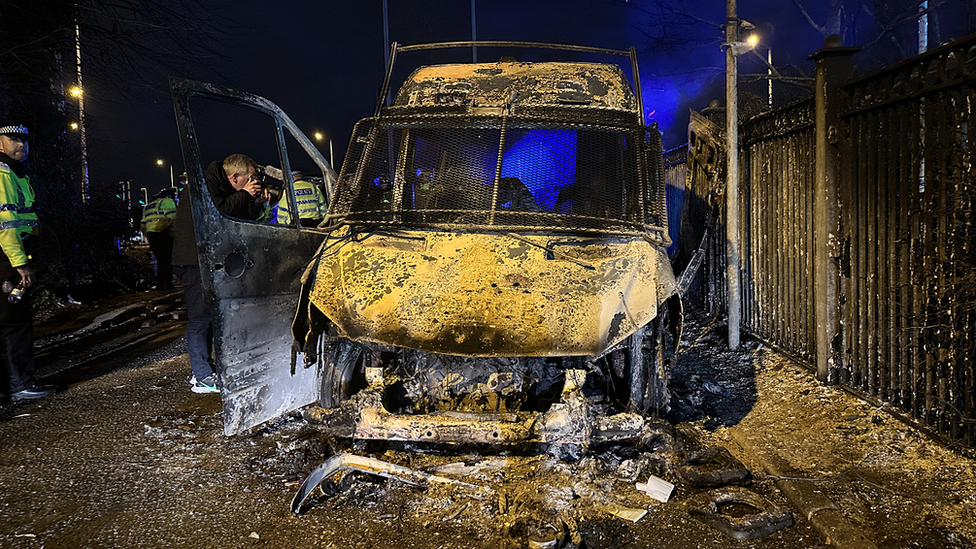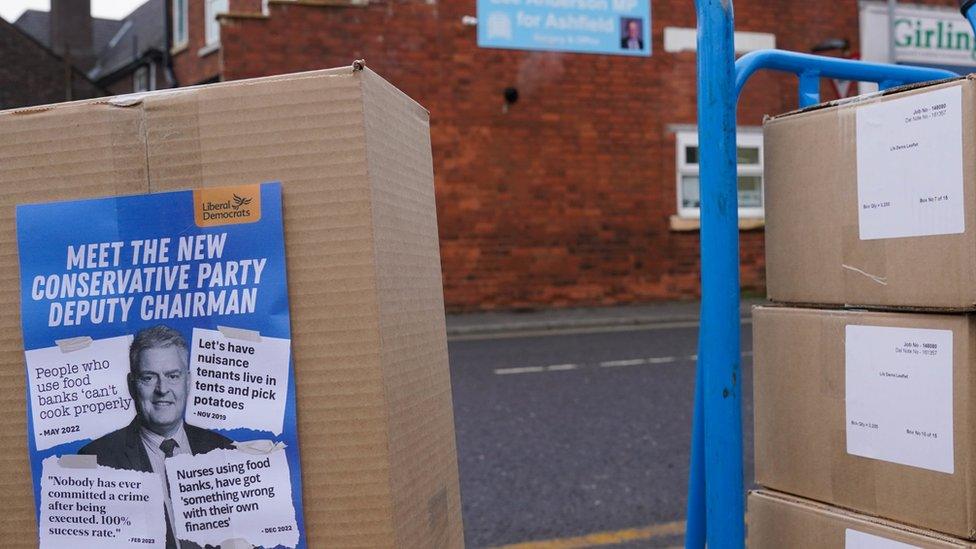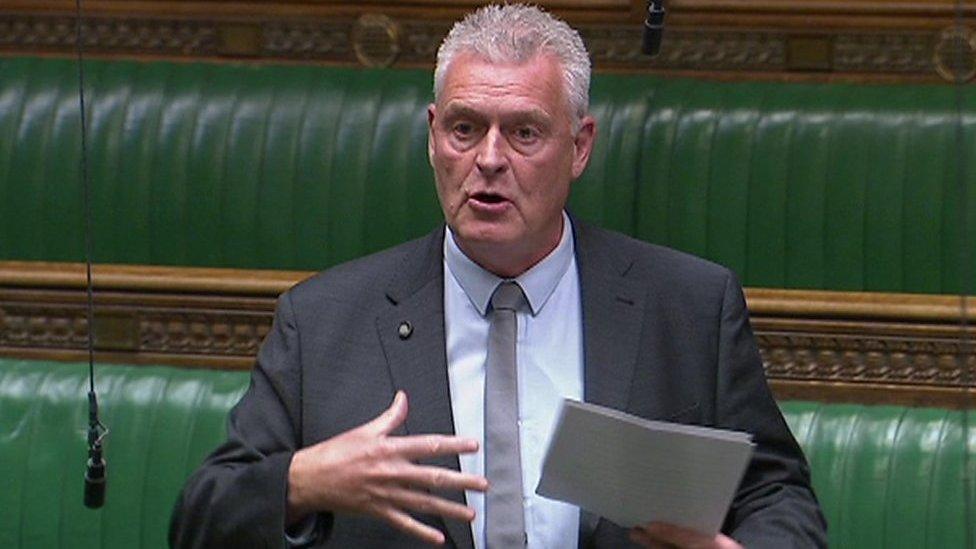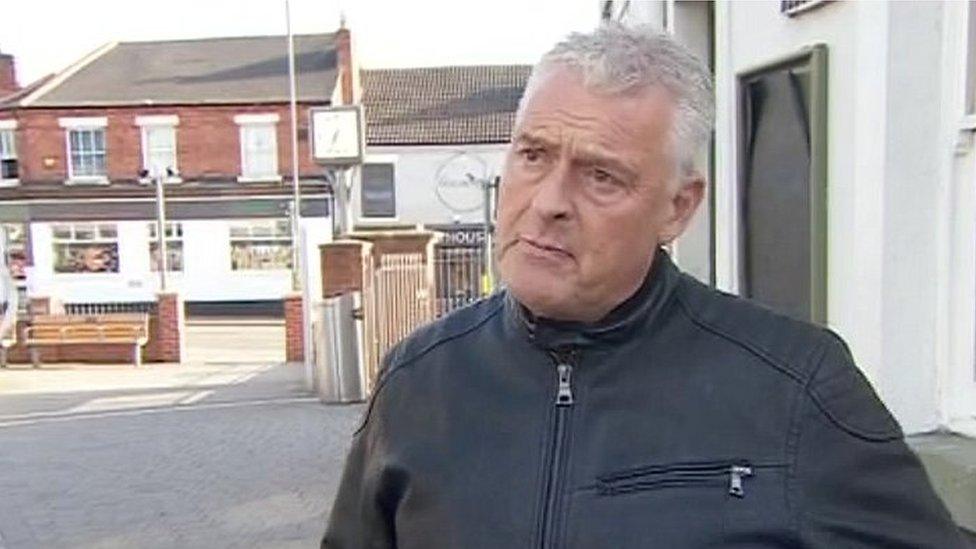Lee Anderson says he is sympathetic to asylum hotel protesters
- Published
Lee Anderson explains why he has sympathy with people protesting outside asylum hotels.
Conservative Party deputy chairman Lee Anderson has said he has sympathy with people protesting outside hotels providing refuge for asylum seekers.
A spate of protests have been organised at hotels across the country in recent weeks, with some ending in violent clashes with police.
Many have been led by far-right anti-immigrant groups such as Patriotic Alternative.
Mr Anderson said protesters were "just normal family people" with concerns about the safety of their community.
Speaking to the BBC's Political Thinking with Nick Robinson, Mr Anderson said: "When you live in a community, you expect to be safe and you don't like sudden change.
"That is how humans behave."
The Hope Not Hate campaign group accused Mr Anderson of "parroting the misinformation used by the far-right to exploit hotels".
"This is precisely the same kind of myths that the far-right are peddling to whip up hate around hotels," a spokesperson said. "We can't have a Conservative MP amplifying these messages."
One man was charged and 14 other people were arrested after a police officer and two members of the public were hurt when missiles including lit fireworks were thrown at a protest outside a hotel accommodating asylum seekers in Kirkby on 10 February.
The initial protest had been triggered by an allegation that a man had made inappropriate advances to a local teenage girl.
Patriotic Alternative, whose policies include deporting non-whites, were present at protests at hotels in Skegness and Newquay.
Several hotels in Skegness have since been boarded up ahead of a planned further protest against their use to house asylum seekers.
The latest Home Office figures show 37,000 asylum seekers and Afghan refugees are living in UK hotels at a cost of £4.7m per day.

A police van was burnt out in the clash in Kirkby
When asked if he had sympathy with people protesting outside the hotels Mr Anderson said: "Of course I do.
"These are not far-right extremists, they are just normal family people from some of these towns and villages that are upset that overnight 200 to 300 young men have arrived.
"And then they are saying things to young girls - and I know there have been a few attacks and some horrible incidents.
"So of course, people are going to be concerned."
Last week Home Secretary Suella Braverman said she understood people's "frustrations" about hotels housing asylum seekers and that this was "causing understandable tensions within communities".
However, she told GB News "violence is never acceptable".
Some Tories have expressed concern about far-right groups being involved in protests against the use of hotels for asylum seekers.
Ahead of a protest in Skegness last week, local MP Matt Warman said the "shameless use of people's concerns by far-right groups is to be deplored and stands in the way of our having a sensible conversation that will in the long term allow us to move beyond the use of these hotels".
In Cornwall, the Conservative leader of the council Linda Taylor condemned a planned protest in Newquay as "racist and bigoted".

Political opponents of the Tory deputy chairman have tried to use his ability to hit headlines against him
Mr Anderson grew up in Ashfield, Nottinghamshire, a former mining area which he now represents as MP. He was appointed deputy Tory chairman by Rishi Sunak last month.
Since becoming an MP he has found himself at the centre of media storms for his outspoken views on issues such as migrant Channel crossings, his support for the death penalty, and the use of food banks.
Before his appointment, he was branded "out of touch" last year for suggesting people needed to learn how to cook and budget "properly", rather than use food banks.
He later defended his comments, saying he was glad to have started a "debate" on the issue.
In his interview with Nick Robinson, he said anyone earning an annual salary of £35,000 "should not be using a food bank" when asked about a row over whether nurses had used the resource.
Related topics
- Published9 February 2023

- Published12 May 2022
